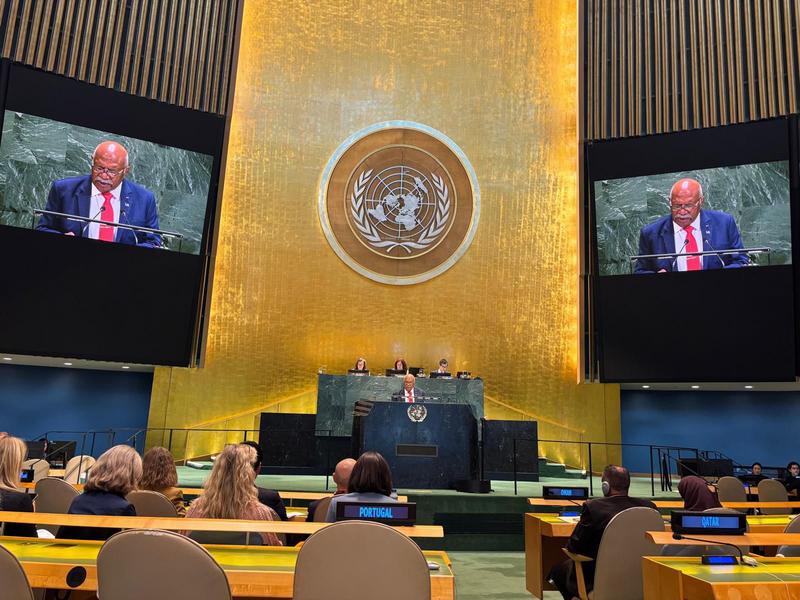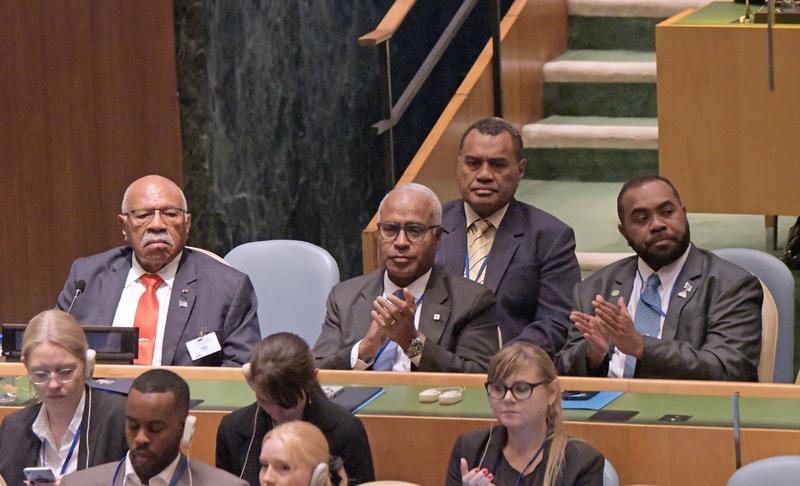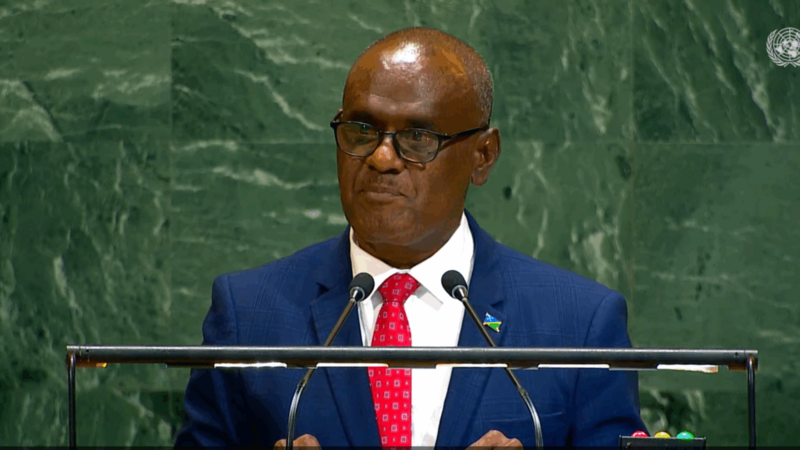Pacific leaders have reaffirmed their commitment to gender equality and the empowerment of women and girls at the United Nations, underscoring that progress in this area is inseparable from broader human rights, sustainable development and climate justice.
Speaking at the High-Level Meeting commemorating the 30th anniversary of the Fourth World Conference on Women and the Beijing Platform for Action, Fiji Prime Minister Honourable Sitiveni Rabuka described the Beijing Conference as “a historic milestone in the global movement for gender equality” that continues to guide international efforts.
Rabuka outlined Fiji’s priorities across critical areas, including poverty, education, health, capacity building, violence against women, women and armed conflict, women and the economy, women in power and decision-making, human rights of women, women and the media, and the wellbeing of the girl child.
“Within those critical areas, Fiji is making progress on its commitment to an inclusive environment, ensuring gender equality through family law reforms and adopting laws such as Fiji’s Domestic Violence Act 2009, the Child Welfare Act 2010, and the Employment Relations Act, as well as other national regulations addressing violence against women, child protection, and employment rights,” he said.
“Today is a celebration — a celebration of the invaluable contributions that women make in our lives. But it is also a solemn reminder of the urgent need to eliminate violence, discrimination, and inequality that persist in many societies," he added.

He stressed that gender equality must begin with strong political will and accountability from leaders, noting that women, who make up more than half the world’s population, should never have their empowerment debated or delayed.
Rabuka added that Fiji’s legal and institutional frameworks provide adequate protection for women and girls and enable authorities to address discrimination and hold perpetrators accountable. “We aim to ensure that gender equality is institutionalised within government structures, further supporting our Department of Women, Children, and Social Protection,” he said.
“As a developing country, Fiji is working to ensure that our daughters inherit a future where equality is a lived reality and not just an aspiration,” he concluded.
For his part, Tuvalu Prime Minister Feleti Penitala Teo also addressed the assembly, declaring that “protecting Tuvaluan women is protecting Tuvalu’s future.”
“Thirty years after the Beijing Platform for Action, Tuvalu reaffirms its commitment to gender equality,” Teo said, citing constitutional guarantees against sex-based discrimination and the adoption in 2024 of a National Gender Equity Policy aimed at mainstreaming women’s empowerment and protection from violence across all sectors.
He acknowledged persistent challenges, noting that one in two women in Tuvalu experiences intimate partner violence and that women remain underrepresented in governance, with no women currently in Parliament and only eight out of 48 seats held by women in local councils.

Teo further highlighted the link between gender equality and climate change. “For Tuvaluan women, climate change is not a distant threat; it is stripping away rights day by day,” he said, warning that environmental pressures continue to undermine women’s livelihoods and cultural heritage.
“The resilience of Tuvaluan women is extraordinary, yet resilience must never be mistaken for consent to injustice,” he added, urging governments to recognise the inseparability of gender equality and climate justice.
The Beijing+30 meeting, attended by more than 160 world leaders, also focused on the Action Agenda, which calls for closing the gender digital divide, tackling poverty among women and girls and strengthening women’s participation in peace and security.
The Solomon Islands, represented by Prime Minister Jeremiah Manele, has highlighted national progress in advancing the rights and empowerment of women and girls.
The meeting, held as part of the 80th Session of the UN General Assembly, brought together world leaders under the theme “Recommitting to, resourcing and accelerating the implementation of the Beijing Declaration and Platform for Action to achieve gender equality and the empowerment of all women and girls.”

The High-Level Meeting served as a global platform for governments, UN agencies, civil society, and activists to take stock of progress since 1995, reaffirm political will, and mobilize resources to close persistent gaps in achieving gender equality. It has been described as a “once-in-a-generation opportunity” to deliver on the promises of the Beijing Declaration, which remains the most comprehensive global agenda for the rights of women and girls.
In his address, as Chair of the Pacific Islands Forum, Prime Minister Manele also outlined the Solomon Islands’ efforts to translate these commitments into action. He highlighted the government’s initiatives in education, including second-chance programs at the Solomon Islands National University for women who left formal schooling due to pregnancy.
On health, he noted that nine out of ten births in the country are now attended by skilled professionals. He also highlighted targeted initiatives such as the distribution of reusable menstrual pads to schoolgirls, cervical cancer vaccinations, and the removal of taxes on menstrual products as concrete measures supporting women’s health and dignity.
Prime Minister Manele reaffirmed the government’s determination to protect women and girls from violence through strong legal and policy frameworks. These include the Family Protection Act, amendments to the Penal Code, the Child and Family Welfare Act, and the National Policy to Eliminate Violence Against Women and Girls.
He also stressed the importance of economic empowerment, pointing to the growth of women’s savings clubs and rural financial literacy programs that provide seed capital for women to pursue small business opportunities.
While recognizing the progress achieved, Prime Minister Manele acknowledged that more work remains, particularly in elevating women into leadership and decision-making roles. He reaffirmed the Solomon Islands’ commitment to the Beijing Platform for Action and to ensuring that women and girls can live in peace, security, and dignity.










